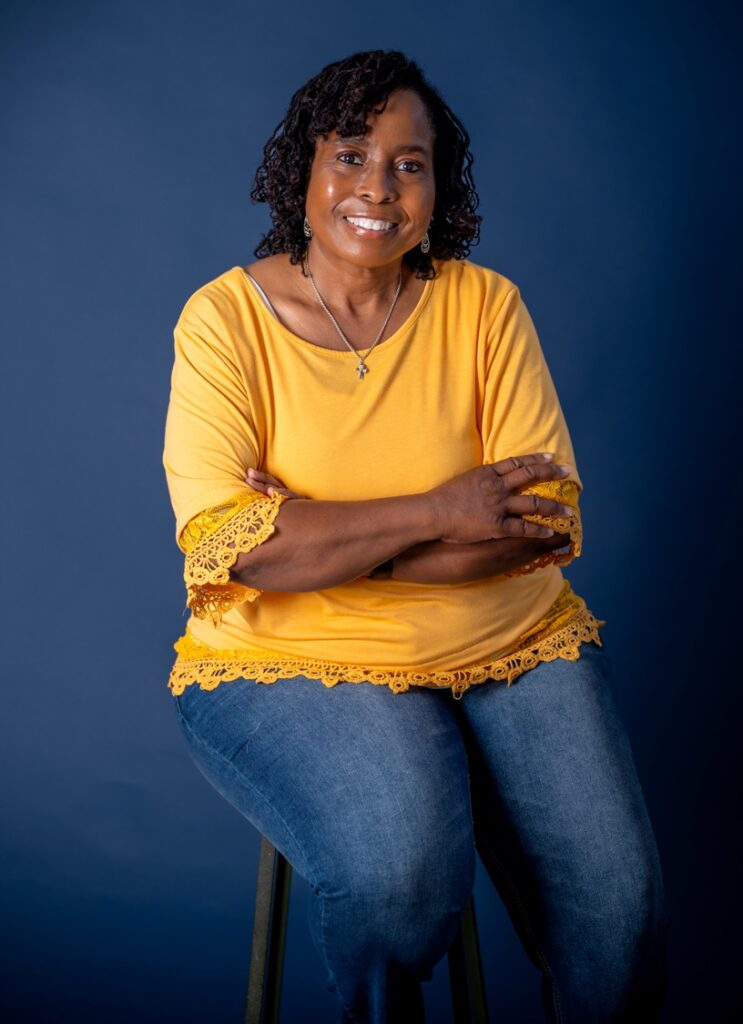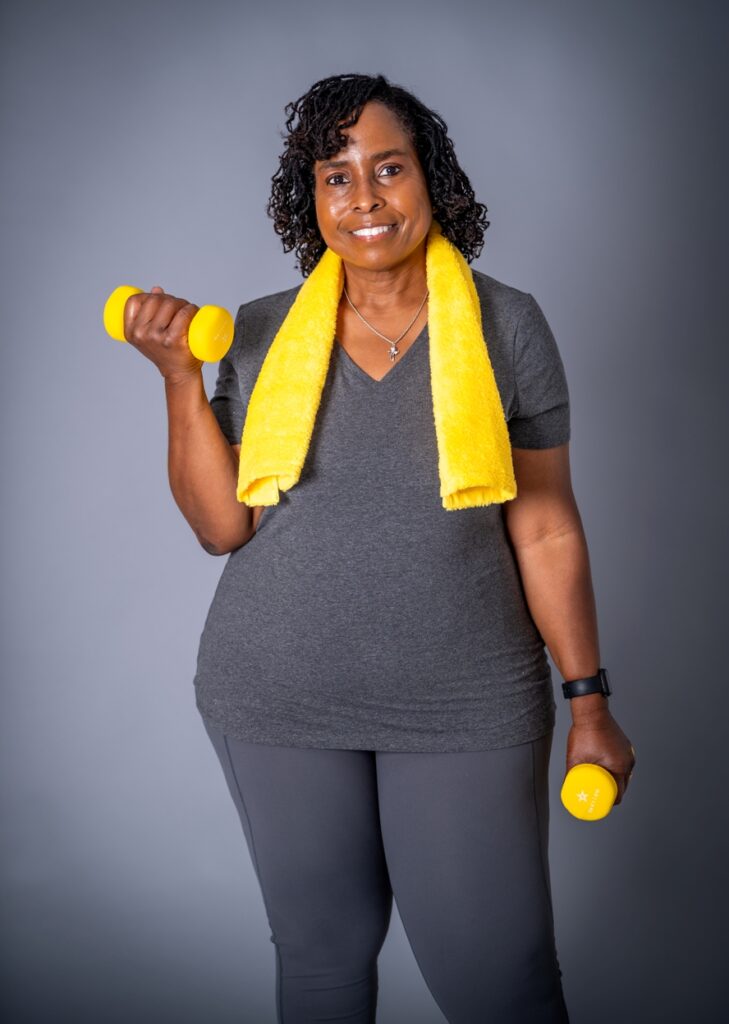My Brand Story
After years of medical training, I was hired as a staff geriatrician in the skilled nursing facility, home health, and ambulatory clinic settings in July 1997. I was glad to be working full-time in a medical specialty I was passionate about. I was married, and my daughter was a toddler. I was happily living on autopilot in my faith, home, work, and community life. Then I received a phone call that brought that autopilot setting to a crashing halt.
My older brother had a stroke in September 1997, days before his 43rd birthday. In a matter of moments, life changed for my brother and our family. My entire life had been spent with my big brother, and now I could suddenly be an only child if he passed away. Having medical knowledge can be a blessing and a curse when it comes to remaining hopeful, especially when it is your own family. Through God’s grace and mercy, my brother did improve and was able to regain his physical and cognitive functioning. With my brother on the mend, I attempted to settle into this “new normal.” Yet, God had something else in store.
In 1999 as I sat in my living room quietly after a long day of work, my daughter tucked into bed, God whispered to me, “Use your voice for Me.” Over the years, I had experience in public speaking, yet I knew in my spirit that God was not referring to public speaking. He was calling me to the ministry. To be honest, I initially looked for somebody, anybody, to refute what I heard. I talked to my family, my pastor, and other clergy in my church. I was waiting for a chuckle or a rolled eye to validate that I had heard God incorrectly. No luck. They all gave me the thumbs up and encouraged me to move forward. I can remember shaking my head and looking up and saying, “God, really? A minister and physician? How is this going to work together?” Yet, I completed denominational ministerial training on the weekends and was later ordained. And I was inspired to go deeper into God’s word.
 I began to yearn for more biblical and theological training. Pregnant with my second child, I was accepted into seminary. It was an amazing learning experience. My fellow classmates represented a cross-section of ages, Christian denominations, races, and genders. Juggling family, work, and school was challenging, yet I felt intellectually and spiritually stimulated and inspired. I yearned to figure out how to align my faith and my work, to not feel as if I had to avoid talking about my faith during my “day job”. Upon completing seminary classes after work and on weekends, I graduated. As one of my local church’s associate ministers, I focused on women’s ministry, which included counseling and leading Bible studies. I loved working with and empowering women. Had I made it to my sweet spot now? No.
I began to yearn for more biblical and theological training. Pregnant with my second child, I was accepted into seminary. It was an amazing learning experience. My fellow classmates represented a cross-section of ages, Christian denominations, races, and genders. Juggling family, work, and school was challenging, yet I felt intellectually and spiritually stimulated and inspired. I yearned to figure out how to align my faith and my work, to not feel as if I had to avoid talking about my faith during my “day job”. Upon completing seminary classes after work and on weekends, I graduated. As one of my local church’s associate ministers, I focused on women’s ministry, which included counseling and leading Bible studies. I loved working with and empowering women. Had I made it to my sweet spot now? No.
After years of infertility, I had my son in the spring of 2002. My father passed away in the Fall of 2002, on my birthday. In my eyes, my father was bigger than life, indestructible. I couldn’t believe he was dying, even though deep down my medical knowledge knew this to be true. I helped my mother care for him on home hospice care each evening. This was my first experience with hospice care. My father’s death left me numb, yet I knew I had to keep going. I can still remember how meticulously I proceeded after I realized he died. My daughter was asleep in my parent’s living room in her miniature camping tent. I gave my son to my mom to hold after I told her that Dad had passed away. I notified my brother, who was in another room. We provided postmortem care to our father after I notified the hospice team and mortuary.
As in the past, God came looking for me in a season of transition. In 2003 I heard that familiar whisper saying, “Start caring for hospice and palliative care patients”. While I had cared for patients who did not survive attempts at CPR and ACLS, and/or who had passed away in the hospital, I would have never anticipated I would be caring for hospice and palliative care patients. I literally asked God, “Lord, am I hearing you right? Really? You are kidding, right?”
The COVID-19 pandemic turned my life and the lives of my team members upside down. By this time I was completing eight years of administrative leadership, and my practice was focused primarily on home health, home hospice, and home palliative care. Along with my fellow physicians, nurses, home health aides, social workers, chaplains, and volunteers, I continued to provide care for our home care patients in the midst of the unknown. The pandemic not only added another layer of uncertainty to our patients and their families as they coped with a 12-month or less life expectancy prognosis, but our individual care team members also had to develop the personal tools to provide care and navigate their own concerns for their health and that of the families. The heightened emotional stress was palpable. I dug deep down within myself to mobilize my skills as a coach, leader, and team member to help our team “survive and thrive” physically, emotionally, and spiritually.
The importance of community service, helping others in need, is in my DNA. My parents modeled this daily during my childhood. And I followed in their footsteps. For as long as I can remember, I have wanted to help encourage others to become their best selves, to excel, to have the same opportunities for success that I have had. I have volunteered at my children’s schools and extracurricular activities. I have planned and supported community events. I participate on several non-profit boards of directors. A heart to help others. I’m just wired like that. I just had a problem saying no. To be honest, a big problem saying no. If I felt I could do it, yes became an automatic answer, no matter the sacrifice required.
As I gave more and more of myself at work, at home, at church, and volunteered in my community, I hit an emotional wall. When I looked in the mirror, I realized I had been on a collision course for years. I had been on emotional and physical autopilot for the last 10 years. And now my dysfunctional approach to life was catching up with me. I was exhausted. The lines between work and my personal life had become blurred. There were days I felt emotionally numb. Stress eating had resulted in me being 50 lbs overweight. I didn’t sleep well. I was prone to irritability. I wasn’t fully present at the moment. I lived life from task to task as if checking the boxes and moving on. I had compassion fatigue, and I had it bad. All my energy was going outward, and I personally was operating on fumes.
 I knew I wanted more. I enjoyed taking care of and being of service to my home care patients. I loved working beside my awesome interdisciplinary teammates. I loved my family and wanted to be fully engaged with them when we were together. I felt my work in home care was a part of the ministry God had called me to. Yet, if I did get a grip, get it together, I wasn’t going to be of service to anyone, especially to God or myself. I realized that living my life like a sprint was not the answer. I had to retrain myself to live like a marathon runner.
I knew I wanted more. I enjoyed taking care of and being of service to my home care patients. I loved working beside my awesome interdisciplinary teammates. I loved my family and wanted to be fully engaged with them when we were together. I felt my work in home care was a part of the ministry God had called me to. Yet, if I did get a grip, get it together, I wasn’t going to be of service to anyone, especially to God or myself. I realized that living my life like a sprint was not the answer. I had to retrain myself to live like a marathon runner.
I developed a personal plan consisting of spiritual, emotional, and physical health. I delved deep into my why. I dedicated myself to aligning my faith with every area of my life and developed a daily routine that continually renewed my spirit, body, and soul. I dropped the weight, reconnected with my family, and created boundaries between my work and personal life. I was able to regain my inner light, brilliance, and passion.
It was during this time that God again said, “Use your voice for Me.” Although the words were the same, I now listened with a different, deeper level of hearing. I got it now. Everything I have been through, and all the experiences and training, had prepared me for something more. Geriatric and Palliative Medicine wasn’t the destination. Women’s ministry wasn’t the destination. They were just stepping stones along the path God was using to prepare me for His bigger calling. He wanted me to use my voice to coach other Christian women.
With my ears and eyes fully open, I soon realized that burnout and compassion fatigue were not limited to me or my co-workers. Daily across the nation,women professionals are leaving the field due to compassion fatigue and burnout.
I created my signature COMPASSION3 life coaching program to help other Christian women to thrive emotionally, spiritually, and physically so they can combat burnout and compassion fatigue. Each of us is like a diamond, uniquely created by God. The challenge of juggling work and life demands can dull our shine. Since we are often alone when we make visits and shoulder the weight of what we real-time encounter at those visits, we are at risk of feeling isolated and alone. The COMPASSION3 program offers the best of both worlds, confidential 1:1 and group coaching.
